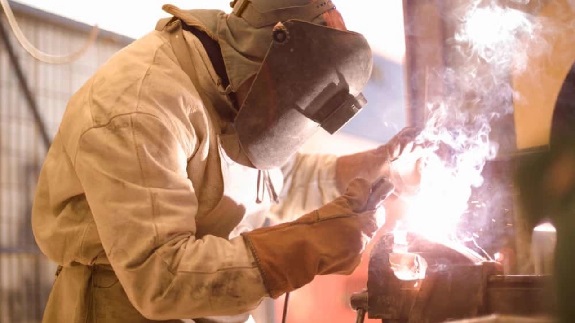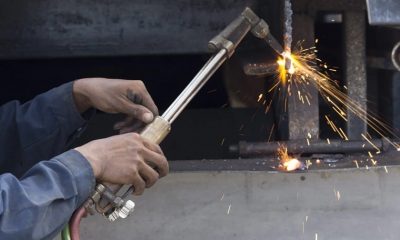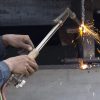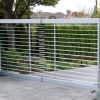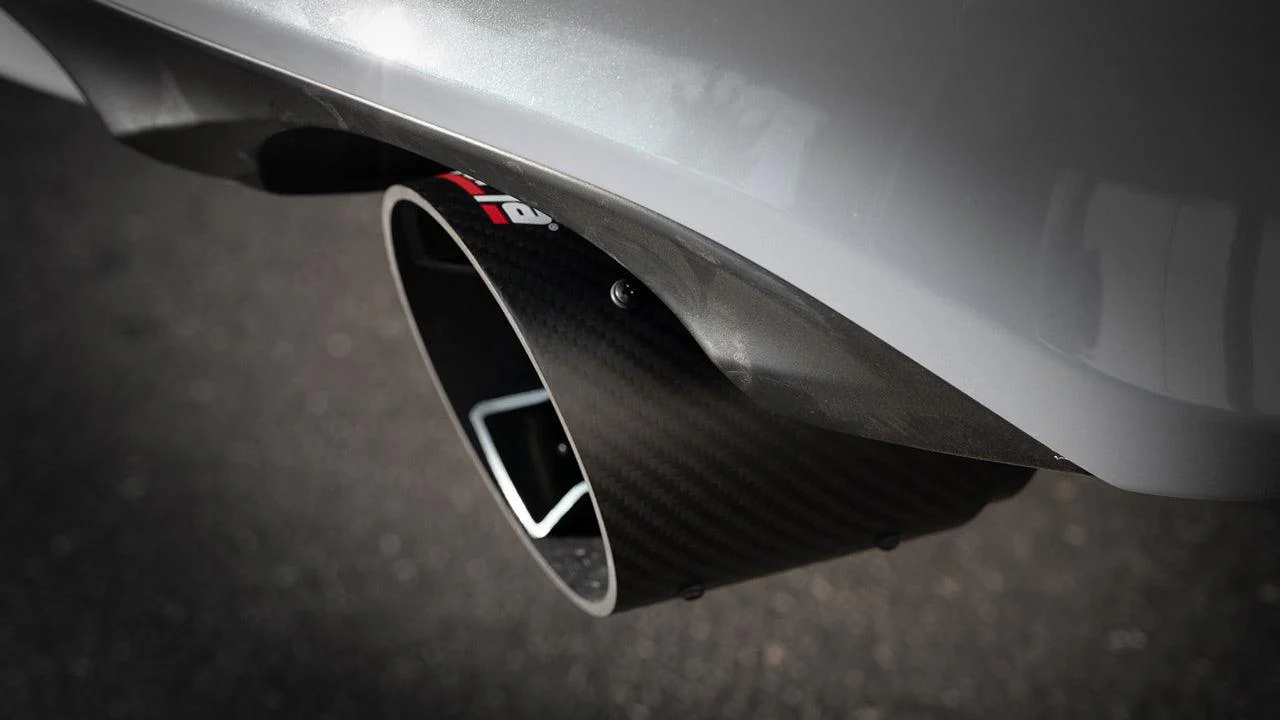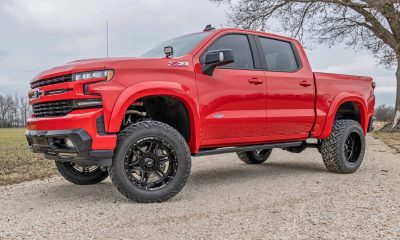Industrial Equipment
Choosing Work Gloves That Offer the Most Benefits for Manual Labour Jobs
When you’re in construction, carpentry, metalworking, forestry or have some other type of manual labour job, it’s crucial to protect your hands. Physical work is hard on the entire body – but your hands tend to take most of the load. So, instead of leaving your hands unprotected against cuts, abrasions, burns or nerve damage, why not prepare them with a good pair of work gloves?
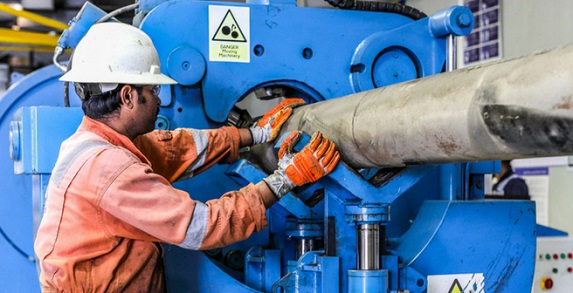
According to a study in the Journal of Occupational and Environmental Hygiene, wearing gloves lowers the risk of occupational hand injuries by up to 70%. But, while wearing gloves is really a no-brainer for most manual labour workers, figuring out what kind is right for the job can be complicated. With that being said, here are some tips on finding the work gloves that fit.
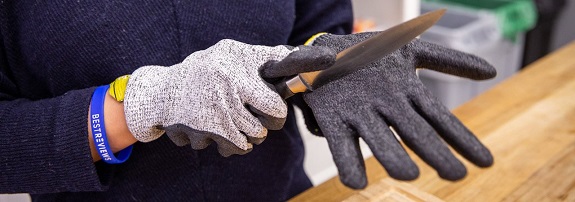
Protection Against Cuts, Abrasions and Punctures
If you work in carpentry, forestry, landscaping or some other job that requires the use of sharp tools, like for instance saws, you will need cut and puncture-resistant gloves. These types of gloves are higher than standard gloves to protect forearms as well. For utmost protection, look for a pair that is made with Arax Knit Technology and complies with EN 388 (the highest cut and abrasion resistance rating in accordance with Australian Standards). But although these gloves are incredibly tough, not all of them can protect you against punctures. Look for a sturdier material, like for instance leather to protect you from splinters and similar mild punctures.
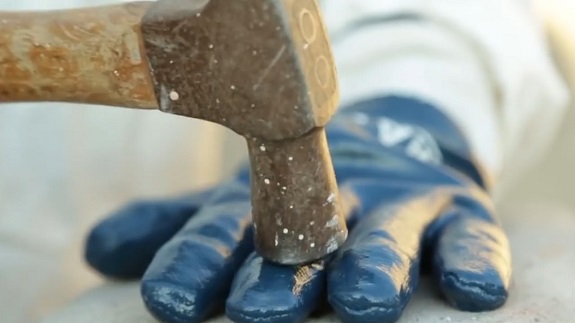
Prevent Bruising and Blistering
In addition to needing gloves that are cut, abrasion and puncture resistant, some jobs also require that the hands are protected against impact and wear and tear from handling materials. So, to avoid painful bruising, blistering and chafing, look for gloves that have extra padding on the palm and knuckle guards. These features can help absorb the shock from an accidental blow to the hand as well as vibrations from power tools and offer general protection.
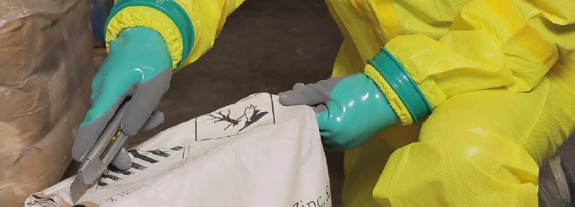
Protection Against Chemicals
Some heavy-duty jobs also involve working around and handling chemicals, like for instance auto work, pharmaceutical factories, laboratories and gardening. These types of jobs require work gloves that can protect against chemicals and liquids. Usually, gauntlets made of PVC are ideal for work around chemicals as well as oil and grease as they offer a high level of coverage and are resistant to liquids. Since PVC can be slippery, make sure to pick a pair that have an anti-slip outer layer for increased grip. In addition, look for a moisture-wicking cotton lining inside that can prevent your hands from becoming sweaty and feeling uncomfortable.
Protection Against Heat or Cold
Many jobs that involve being exposed to heat and cold can benefit from special gloves that offer protection from such extreme conditions. If you’re working in welding or metal working, you will need a pair of heat-resistant gloves made of a durable, thick material that can protect your hands from sparks and burns. There are also heat-resistant work gloves lined with a fire-retardant coat that reduces the risk for the gloves inviting if they come into contact with fire or extremely high temperatures. On the other hand, working outdoors in the cold weather or tasks involving exposure to low temperatures require gloves that are waterproof and also lined with a material that insulates your hands and helps trap heat inside.
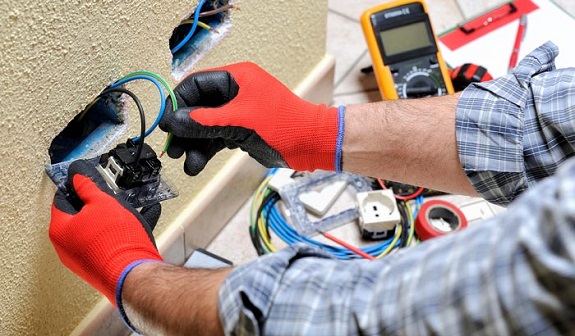
Protection Against Electric Shocks
Any job that involves handling electrical wires and hands-on engineering has a high risk of electric shocks. If you’re working with or near live wires, then look for gloves made of leather or rubber. This types of materials aren’t conductive and can save you from getting a life-threatening electrical shock. Also avoid gloves with buttons, zippers or other features made of any kind of metal components or other conductive materials.

Make Sure You Have the Right Fit
Since you will need to have the gloves on for long periods of time, make sure that they fit right and are comfortable to wear. Poorly fitting gloves can cause more than just discomfort. They can restrict dexterity during work which can not only enhance the chances of making a mistake but also the risk of getting injured. With that being said, make sure to pick a pair of gloves in the correct size so that they don’t fall off or feel too tight.
In addition, closely inspect the design of the gloves. While inside seams make the gloves more durable, they may irritate your skin. In addition, if the seams are across the palm, the gloves feel more comfortable. On the other hand, when the seams are across the back, they provide a more secure fit. Consider what your preferences are and choose accordingly.
Consider Extra Features
If you want the ability to check your phone or use a touch-screen device, then gloves with touch-sensitive pads on the fingertips can allow you to do so without having to take them off. If you need the sensation provided from your fingertips, then fingerless or half-finger gloves can offer you better dexterity. These gloves can keep your palm warm and protected while still allowing you to perform more dexterous tasks like typing on a computer or handling delicate machines.
As a proud Pisces known for the selflessness, Olivia joined up the blog fascinated by the idea she can help readers with info on topics and their related benefits like health and beauty, travel, food and drinks. When not writing, she likes to call it a day reading comic books in the company of her Tonkinese cat Chatty or binge-watching The Big Bang Theory with her SO like the nerd she is.

